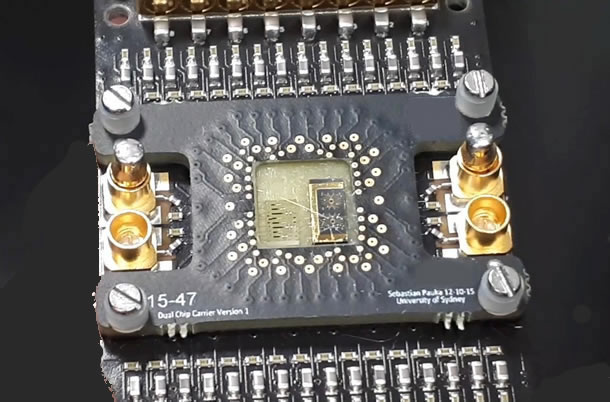While pure-play quantum computing (QC) gets most of the QC-related attention, there’s also been steady progress adapting quantum methods for select use on classical computers. Today, Microsoft announced that Toshiba’s ‘Simulated Bifurcation Machine’ will be available through the Azure Quantum platform.
Sorting through tenets of quantum computer technology that seek to build qubits and harness entanglement is already confusing. The classically digital versions of quantum computing lack the full power and promise (scale, speed) of true quantum computing but they are proving effective for some optimization applications such as MRIs and traffic congestion management, according to Microsoft. These approaches have been labelled ‘quantum-inspired’ and in one sense they emulate how D-Wave systems work (quantum annealing) to search out minima and maxima.
Confused? You’re not alone. Here’s an excerpt from Microsoft’s bog today announcing the Toshiba offering:
“Many optimization algorithms, such as simulated annealing, parallel tempering Monte Carlo, or genetic algorithms, mimic natural processes. As we’ve developed a deeper understanding of quantum mechanics, new optimizers have been developed that make use of quantum mechanics to accelerate optimization and escape local minima in the cost function landscape through emulating quantum tunneling.
“Simulating these quantum effects on classical computers has led to the development of new types of quantum solutions that run on classical hardware, also called quantum-inspired optimization (QIO) algorithms. These algorithms allow us to exploit some of the advantages of quantum computing approaches today on classical CMOS-based hardware, providing a speedup over traditional approaches. Using quantum solutions on classical hardware also prepares us for the future of quantum optimization on scaled, fault-tolerant quantum hardware.”
 Toshiba and Microsoft made the announcement at today’s Ignite Conference. Microsoft is one of two cloud providers to launch a portal – in this case Azure Quantum – providing access to several competing quantum technologies. AWS also did so in August with Braket.
Toshiba and Microsoft made the announcement at today’s Ignite Conference. Microsoft is one of two cloud providers to launch a portal – in this case Azure Quantum – providing access to several competing quantum technologies. AWS also did so in August with Braket.
Microsoft efforts to develop its own quantum computing platform have been slower-going and include a bet on technology that is farther out than its rivals – superconducting, ion trap, optical, etc. – but which would greatly reduce the need for error correction, one of QC’s big stumbling blocks. Regardless, Microsoft has pushed ahead with Azure Quantum platform and it allows users to explore a variety of quantum technologies. Toshiba joins existing partners 1Qbit, Honeywell, IonQ, and QCI in providing services to the growing quantum ecosystem.
Toshiba’s system has been around for some time and the company reports it has demonstrated ten-fold improvement over other devices for several problems.
Again from the Microsoft blog: “In principle, every computational problem we see in practice can be translated to a particular type of binary optimization problem: searching for the ground state of an Ising model. While, in general, this mapping can be too costly to be practical, combinatorial optimization problems are often easy to rewrite into this form, and for problems that are native to this form (such as planning, scheduling, or partitioning), techniques such as those employed by Toshiba’s solution provide a powerful tool for solving them.”
Link to Azure blog: https://cloudblogs.microsoft.com/quantum/2020/09/22/toshiba-joins-azure-quantum-network-machine-solving-large-combinatorial-optimization-problems/


























































